Study in Portugal. 21 best institutions in Portugal
-
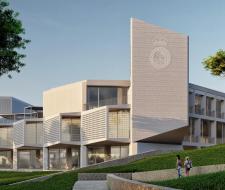 from 10431.00 € / yearApply with documents
from 10431.00 € / yearApply with documents -
 from 9216.00 € / yearApply with documents
from 9216.00 € / yearApply with documents -
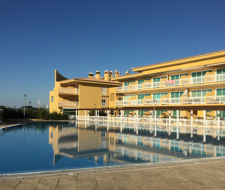 from 2700.00 € / 2 weeksApply with documents
from 2700.00 € / 2 weeksApply with documents -
 Individual lessons with the teacher are developed for each student.
Individual lessons with the teacher are developed for each student. PortugalLisbonCurrently watching: 3from 1285.00 € / weekApply with documents
PortugalLisbonCurrently watching: 3from 1285.00 € / weekApply with documents -
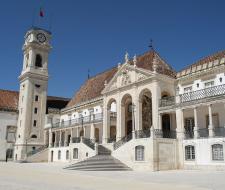 from 7681.00 $ / yearApply with documents
from 7681.00 $ / yearApply with documents -
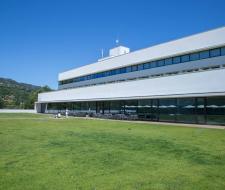 from 3114.00 $ / yearApply with documents
from 3114.00 $ / yearApply with documents -
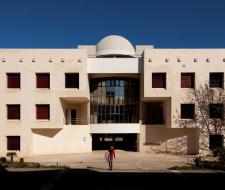 from 3460.00 $ / yearApply with documents
from 3460.00 $ / yearApply with documents -
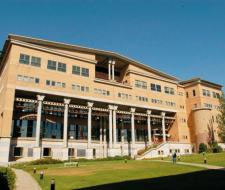 from 6035.00 $ / yearApply with documents
from 6035.00 $ / yearApply with documents -
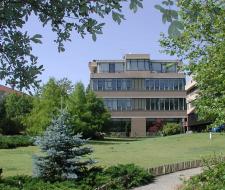 Apply with documents
Apply with documents -
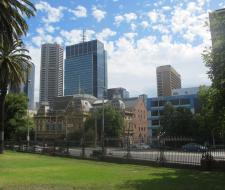 Apply with documents
Apply with documents
Alternative destinations
Education information
Every year, studies in Portugal, especially university studies, are becoming increasingly popular. This is due to intensive development of the national education system, strengthening of foreign policy ties, and, importantly, affordable cost of education for foreign students.
Education System in Portugal
Portugal's educational journey commences with nine years of secondary school education. Not all students pursue higher education immediately after this phase; some dive straight into the workforce.
Those choosing to study abroad in Portugal for higher education can select between universities and polytechnic institutes. Their educational hierarchy aligns seamlessly with the globally-recognized Bologna system:
-
Bachelor's/Licentiate Degree: Typically spanning 3-4 years, though some specialties might extend the duration by an additional 1-2 years.
-
Master's Degree (Mestrado): A course that takes about 1.5-2 years.
-
Doctoral Studies (Doutoramento): This involves a minimum of one year for coursework and an indefinite period for dissertation writing.
-
Agregação: An advanced academic title that paves the way for active research, scientific endeavors, and teaching opportunities in one's field.
It's pivotal to highlight that universities in Portugal are interconnected. This cooperation allows international students to transition smoothly between institutions, enriching their study in Portugal experience with diversity and comprehensive learning.
Several programs have gained immense traction among students:
-
Fine Arts
-
Medicine
-
Electronics
-
Engineering
-
Design
-
Business and Management.
Moreover, foreign students have the flexibility to work alongside their studies: a cap of 20 hours per week during academic terms and full-time during breaks.
How to apply to study in Portugal?
To study in Portugal, foreign students must navigate the admission process which is highly competitive. Admission tests, known as Concurso nacional in public schools and Concurso local in private ones, gauge their preparedness. Proficiency in Portuguese is non-negotiable since the curriculum, examinations, and assessments are all conducted in the nation's official language. To bridge any language gaps, many universities facilitate intensive Portuguese courses, enabling foreign students to boost their fluency swiftly.
Why foreign students Choose Portugal for study?
One of the predominant attractions is the cost of study in Portugal. Remarkably, state universities often offer Bachelor's programs without tuition fees; students only bear an annual registration expense ranging between 570-920 euros. Conversely, private universities might charge up to 1500 euros annually. Pursuing a Master's invariably involves tuition, with fees oscillating between 920-8000 euros annually, contingent on the institution, field of study, and specialty.
However, what makes Portugal particularly alluring for international students is its affordability. A decent apartment rental hovers between 300-500 euros monthly. Allocate approximately 100 euros for transportation and another 200 euros for food each month. When juxtaposed with the fees and living costs in countries like the USA, UK, Austria, or Switzerland, Portugal emerges as a financially prudent choice for those keen to study abroad.
For guidance on how to apply for a study permit in Portugal or details about the best programs to study in Portugal, feel free to reach out to educational consultants and advisors specializing in Portuguese education.
Age gradation for studying in Portugal
More students are gravitating towards studying in Portugal, given the rapid development and diversification of its secondary schools. These institutions span state-run, private, and international schools. Portuguese secondary education, a mandatory phase, unfolds over three tiers:
-
Preparatory School: Ages 3-5
-
Basic Education: Ages 6-15
-
Senior Education: Ages 15-17
During the preparatory and basic levels, there's a marked emphasis on holistic education. Beyond standard academic subjects, students participate in sports, cultivate creative talents, and foster personal and moral growth. The concluding years (10-12) bifurcate into:
-
General Education: Tailored for those steering towards university.
-
Technological Education: For those planning to enter the workforce post-graduation.
Portugal also boasts a plethora of private and international schools, geared towards furnishing foreign students with top-notch education. These institutions stand out for their state-of-the-art infrastructure and exceptional teaching cadre. Alongside academic excellence, students also benefit from athletic, artistic, and moral growth. Many of these schools operate as boarding facilities, where students reside throughout the academic year, journeying home during holidays. Contrasting with public schools, these institutions often deliver their curricula in English and maintain a rigorous language foundation, emphasizing English, Portuguese, and other global languages.
Study Programs in Portugal for International Students
Both private and international schools in Portugal offer a suite of esteemed programs to a global student body. To gain admission into these elite institutions, students should fulfill the academic prerequisites and demonstrate proficiency in English or Portuguese.
-
GCSE (General Certificate of Secondary Education): This curriculum aligns with the British secondary education benchmarks. Students undertake 8-10 subjects, undergoing evaluations in 6-8 of them. Grades A, B, and C are deemed successful, with A* being the pinnacle.
-
IGCSE (International GCSE): Birthed in 1985 by the luminaries at Cambridge University, the IGCSE builds upon the British GCSE framework but with amplified rigor and depth. Its challenging final exams and robust curriculum are gaining traction, with increasing schools obtaining accreditation to offer it.
-
A-level: Often dubbed the "English Gold Standard," this British high school completion program is globally revered. Besides mandatory subjects like English and Math, students choose from a buffet of sciences or humanities. This curriculum isn't merely confined to classrooms but extends to research, labs, and collaborative projects. Assessments span 3-5 subjects, with grades ranging from A to E. Here, A, B, and C are successful, and A* is the zenith.
-
International Baccalaureate (IB): Conceived in the 1960s, the IB has been steadily cementing its place as a global educational heavyweight. It encompasses four stages: early years, middle school, graduation program, and career development.
-
IB Diploma Program: This globally recognized diploma has alumni gracing many of the world's top universities. Its curriculum spans six categories, including foreign language, native language, math, sciences, humanities, and elective subjects. Completing this rigorous program equips students with a competitive edge when applying to international universities.
For those seeking insights on how to apply for a study permit in Portugal, details on the cost of study in Portugal, or advice on selecting the best programs to study in Portugal, professional educational consultants with a focus on Portuguese academia can be invaluable.
Portugal Higher Education System
In Portugal, secondary education spans 9 years and is mandatory for all. However, not every student progresses to higher education, as some opt to enter the workforce immediately after school.
The academic landscape of Portugal features two primary pillars: universities, which cultivate researchers, scientists, and other scholarly professionals, and polytechnic institutes, designed to produce specialist practitioners. The academic trajectory here aligns seamlessly with the acclaimed Bologna system:
-
Bachelor's Degree: Typically a 3-4 year commitment, though this can stretch by 1-2 years based on the specialization.
-
Master's Degree (Mestrado): Spans between 1.5-2 years.
-
Doctoral Studies (Doutoramento): Generally a year of study followed by a dissertation. However, there's flexibility in how long one can spend at this level.
-
Agregação: A distinctive higher academic qualification that empowers recipients to engage in advanced research, scholarly pursuits, and teaching.
One of the standout features of studying in Portugal is the close-knit collaboration between Portuguese universities. This synergy ensures smooth transitions for foreign students wishing to transfer between institutions, thereby enriching their academic journey with versatility, breadth, and depth.
Popular Fields of Study in Portugal
Portugal's higher education institutions excel in a variety of domains, with the following being particularly sought-after:
-
Art
-
Medicine
-
Electronics
-
Engineering
-
Design
-
Business and Management
Furthermore, students enjoy the flexibility to work up to 20 hours weekly during semesters, with the provision to work full-time during breaks.
How to Apply for Study Permit in Portuguese Universities
Foreign students looking to study abroad in Portugal must understand that admissions are competitive. Candidates undergo examinations to gauge their proficiency, mirroring the assessments local Portuguese students face. These are termed as "Concurso nacional" for public institutions and "Concurso local" for private ones. A strong command of the Portuguese language is non-negotiable since instruction, examinations, and assessments are predominantly in the country's official language. Recognizing this, many universities offer intensive Portuguese language courses, helping international students ramp up their linguistic skills swiftly.
Cost of Study and Living in Portugal
Many foreign students are attracted by the fact that state universities in Portugal provide an opportunity to study at the undergraduate program for free - only an annual registration fee of 570-920 euros is paid. In general, studying at private universities will cost a little more - up to 1,500 euros per year. Master's programs are paid at any university: the cost is 920-8000 euros per year, highly depends on the chosen educational institution, as well as the academic direction and specialty.
At the same time, Portugal is also a very inexpensive country in terms of accommodation and stay. For example, you can rent a good apartment for 300-500 euros per month, transport and travel will take about 100 euros, and you will need to spend another 200 euros on a monthly diet. Compared with studying in the USA, Great Britain and many European countries (for example, Austria or Switzerland ), these prices are very low, which makes studying in Portugal even more attractive for foreign students.



